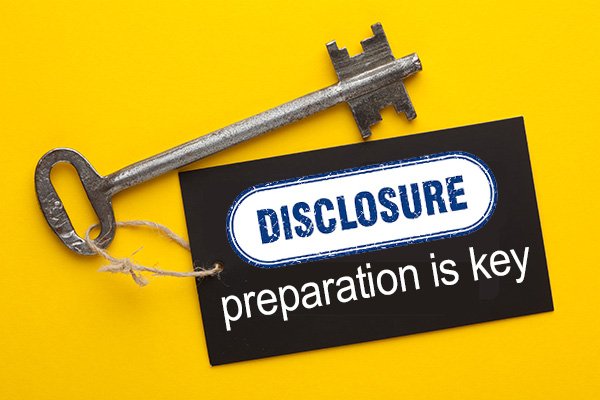So How Does Full Therapeutic Disclosure Work?
It’s no secret that hiding our deepest secrets could eat away at us. Confronting these secrets and bringing them to light with someone we trust is a powerful step to finding healing. And this is exactly where full therapeutic disclosure comes into play.
For many partners, the ongoing pattern of lies can be even more challenging to navigate than the specific incidents of betrayal. The continuous deception erodes trust and creates a deep sense of emotional turmoil. It is the relentless cycle of dishonesty that often inflicts the most pain, as it intensifies feelings of betrayal and makes it difficult for partners to establish a sense of security and stability in their relationship.
Full Therapeutic Disclosure is a structured process of honesty and transparency between a person struggling with a secret or addiction and their spouse. With the help of therapy, this process encourages full exposure of any sexual or financial secrets that may have caused harm to their spouse or family.
A full therapeutic disclosure encompasses information that would otherwise have been kept hidden or minimized, justified, or rationalized. This disclosure is ultimately to begin a process of healing and reconciliation.
How Is A Full Therapeutic Disclosure Prepared?
When someone hears the term "Full Disclosure," they may envision revealing everything all at once. However, this approach may not always be helpful and can potentially cause more harm. In Full Therapeutic Disclosure, the information is carefully prepared with the guidance of a specially-trained CSAT therapist. Ideally, the one revealing their secrets will have achieved 90 days of sobriety and will have worked closely with their therapist for 3-4 months to create a thorough document outlining what happened, with whom, where, and how the betrayal occurred, as well as where the money was spent.
Throughout this process, the betrayed partner will also have the support of one of our specially-trained partner therapists: either a Certified Clinical Partner Specialist (CCPS) trained through APSATS or a Certified Partner Trauma Therapist (CCPT) trained through IITAP. These therapists work with the partner to provide a safe and stable environment as they navigate the heart-wrenching experience of betrayal. The partner will be given a list of carefully crafted questions and topics to select from and choose what they feel comfortable hearing and to what level of detail.
It's important to recognize that the betrayed partner did not have a choice in the betrayal; however, the therapeutic and disclosure process initiates a supportive and personalized journey towards recovery for both the betrayed partner and the relationship.
Many couples find that pairing full therapeutic disclosure with a "disclosure polygraph" is helpful. There are polygraph experts who specialize in therapeutic polygraphs for verifying the accuracy of the documentation, and many couples opt to do a pre-disclosure polygraph to provide the betrayed partner with extra assurance that they are hearing complete and honest information. The person who committed the betrayal and is revealing it also benefits from this extra step, as it reinforces their intention to be fully transparent in moving forward from a place of responsibility and trust. Ultimately, this fosters significant progress in the recovery process and cultivates the possibility for a thriving relationship in the future.
How Is A Full Therapeutic Disclosure Presented?
When it comes to giving and receiving a full therapeutic disclosure, establishing trust and support is a crucial part of the process. We understand the immense emotions that both the betrayed partner and their spouse experience during this time, and we are here to guide you through it.
As part of the therapeutic disclosure process, it is important for both partners to have a plan for post-disclosure and to identify their sources of support. We encourage open communication and collaboration between the couple and their individual therapists in developing this plan.
To ensure a smooth and purposeful disclosure, the couple and both of their therapists come together for the reading of the document. This meeting is carefully planned, paced, and intentional. We respect the need for breaks whenever necessary, allowing time for each partner to connect with their individual therapist and process their thoughts and emotions.
During these breaks, the partner is given the space to fully consider the questions they want to ask. We understand that this is a delicate and sensitive time, and we want to ensure that every question is answered with compassion and understanding.
Our goal is to create a safe and supportive environment for both the betrayed partner and their spouse. By establishing intentional post-disclosure boundaries that both partners agree to, we aim to foster trust, promote healing, and give you the tools you need to move forward.
Who Can Benefit From Full Therapeutic Disclosure?
Full therapeutic disclosure is useful for everyone, but specific groups benefit the most. Here are a few:
People who struggle with sex addiction or other addictions
Individuals who have been betrayed by another in a relationship
Parents who are protecting their children from harm
Couples having difficulty trusting each other
The Benefits of Full Therapeutic Disclosure
Full therapeutic disclosure offers significant benefits to individuals as well as those around them. It reduces emotional burdens, guilt, shame, and secrets and, most importantly, improves interpersonal relationships.
Here are some of the significant benefits of full therapeutic disclosure:
Improved self-esteem and self-worth
Restoration of trust and forgiveness
Realignment of priorities and communication pathways in relationships
Ability to face problems in a proactive and positive way
Full Therapeutic Disclosure is a powerful, structured, and proven tool that offers an opportunity for couples struggling with infidelity, sex addiction, or betrayal trauma to find true healing and reconciliation. It is an opportunity for individuals to face their past, find restoration, and work towards a better future free of emotional burdens. It is a big step in the direction of healing, improving, and growing in your relationship. Email us today to learn more.
Sources:

